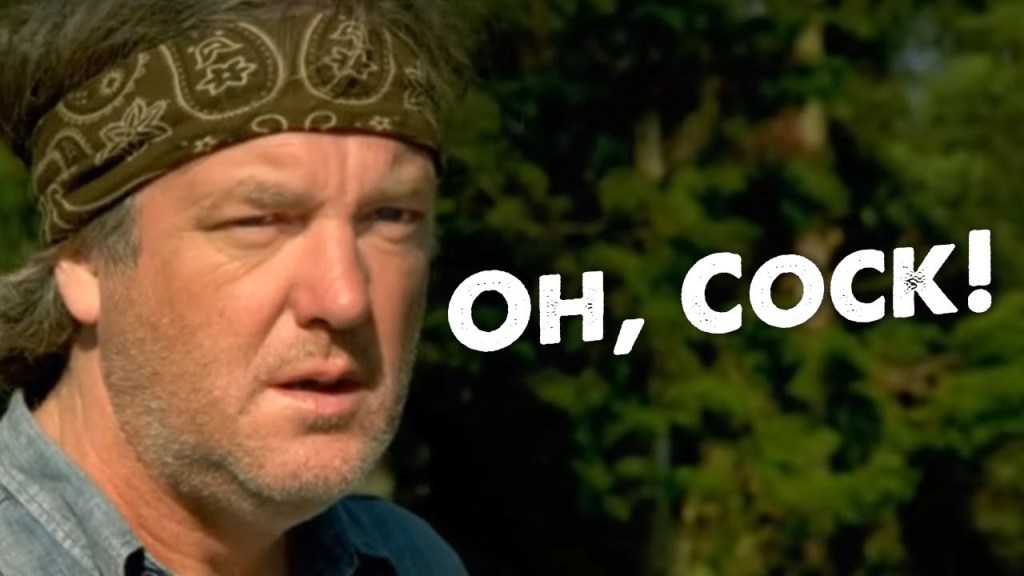Warning: This post contains plentiful, rapturous, and thoroughly frivolous vulgarity (it’s 2024, for fuck’s sake, what did you expect?)
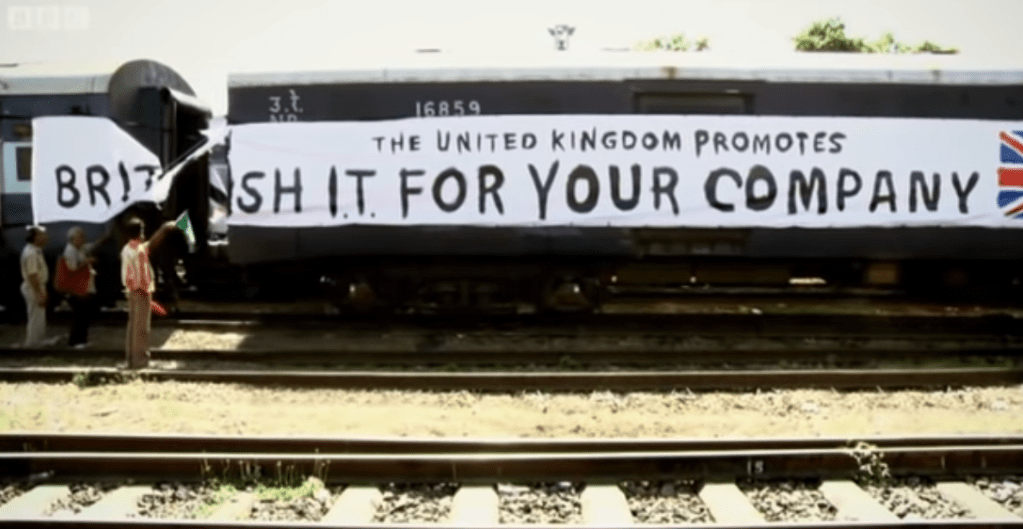
Like millions of Gen Xers, my introduction to the strange land known as Great Britain came not via history class but BBC Television. Sometime in my impressionable childhood American Public Television positively lost its mind and started airing Monty Python’s Flying Circus. I say “lost its mind” because depending on one’s point of view British television standards in those days were either decidedly more enlightened and progressive than ours, or more thoroughly debased. There was more profanity, surprisingly more violence, and more partial nudity than you’d find even on HBO. The first female breast I ever saw was in a Terry Gilliam animation. At the age of 11 or 12 I nearly passed out watching the “Death by Naked Chase” scene in Monty Python’s Meaning of Life. Ah, our innocent, halcyon youth. For a kid who was still young enough to risk getting in trouble for uttering even a diminutive vulgarism like damn, it was rapturous. Thus began my lifelong addiction to British television and radio.
For years, my understanding of British politics came primarily from Yes Minister, my knowledge of British history could be traced to Blackadder and Monty Python and the Holy Grail, and what I knew about the modern English class system was thanks to Fawlty Towers, Keeping Up Appearances, A Bit of Fry and Laurie, and Are You Being Served?, with an assist from movies like A Fish Called Wanda. Mr. Bean taught me about the seething id that lurks just beneath the British stiff upper lip. I have a weakness for John Cleese’s How To Irritate People (particularly this scene, which is more than worth four minutes of your time), and Roger Ebert and Rotten Tomatoes be damned, I maintain that Rowan Atkinson’s Johnny English is comedy gold (the first one; the second was dreck).
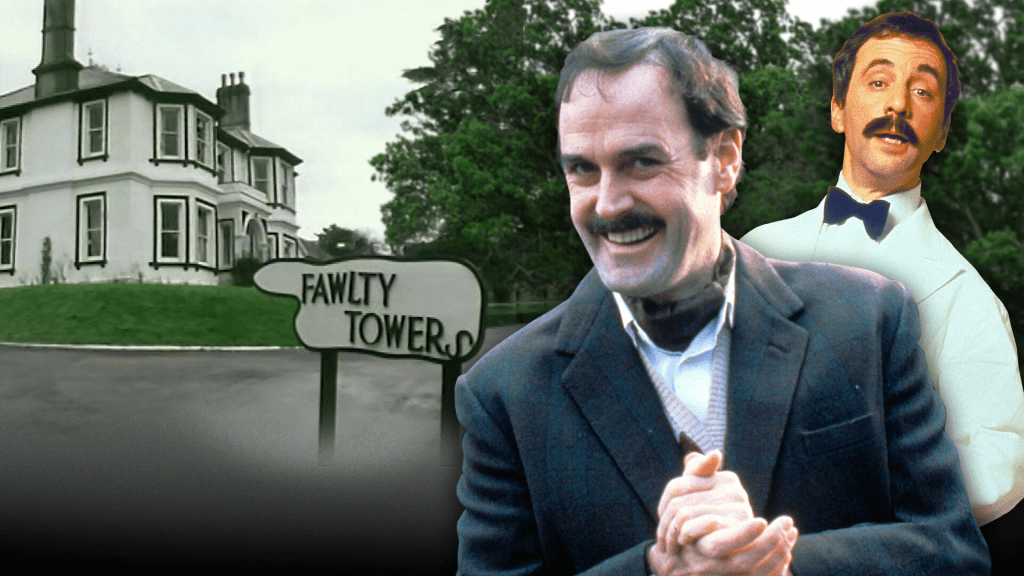

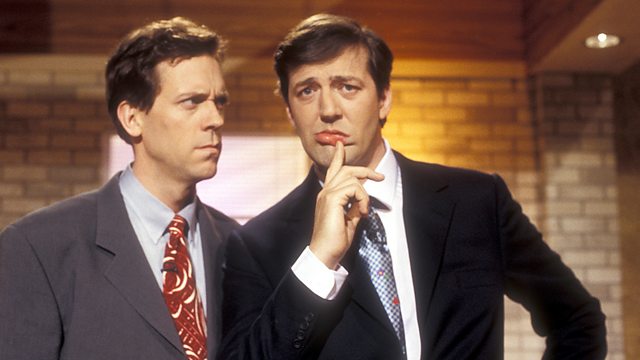
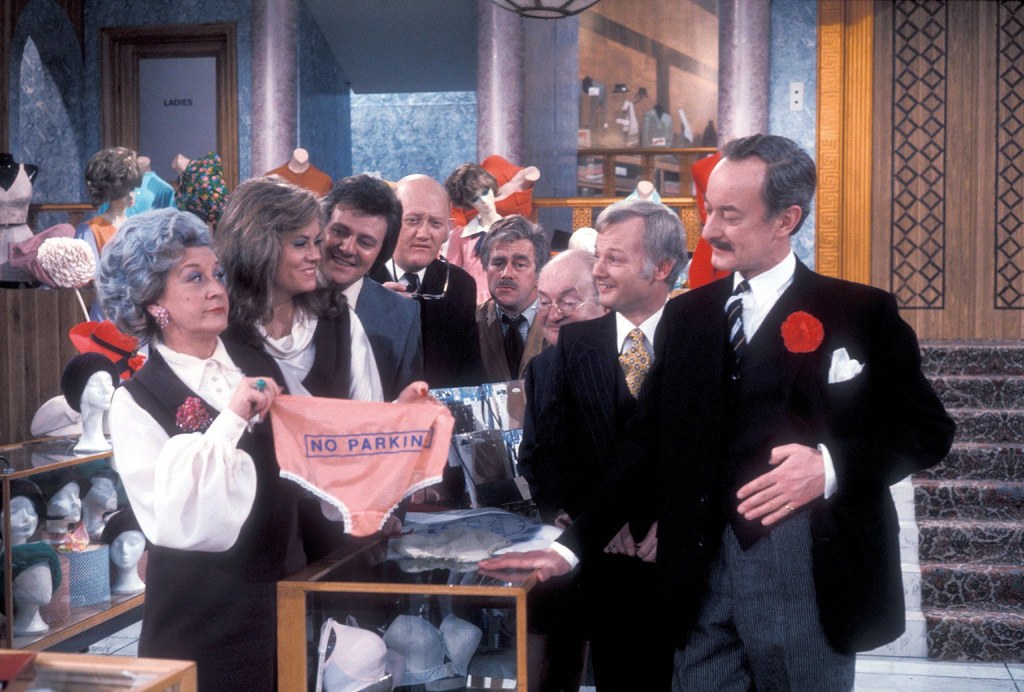
My teachers
Along the way I picked up a smattering of British profanity. Initially it was a limited vernacular, the occasional bloody hell or bollocks or twat. It wasn’t until I discovered the long-running BBC motoring show Top Gear that I received a full education in the endlessly varied lexicon that is Queen’s English vulgarity.
It’s almost as if the British spent a good part of the millennium after the Battle of Hastings building a civilization specifically for the purpose of mocking their own creation. There’s a self-conscious absurdity to British culture, starting with the monarchy itself, the very cornerstone of all that is British. Watching (a very brief part of) King Charles’s coronation was revelatory: What looked dignified, even magisterial in splendid Victorian oil paintings and opulent Edwardian portraiture looked positively hilarious in full color, digital HD on a flat screen. Suffice it to say, it’s hard to get lost in the pageantry of it all when you can see the King’s pores. I’m pretty sure Charles and Camilla themselves were highly uncomfortable, and the whole thing played like – well, a Monty Python sketch. Even the royal crown looks rather silly in person, and I suspect that’s part of the intent.


One is dignified, the other is silly.
The three Top Gear hosts, Jeremy Clarkson, Richard Hammond, and James May had a sort of neo-Three Stooges routine, exulting in personal insults and schtick rather than physical slapstick (though there was plenty of that, too). I have studied at their feet for years, including the Amazon spin-off The Grand Tour, and I have come to the conclusion that our forebears on that funny little island in the North Atlantic run rings around us colonists when it comes to blasphemy, malediction, and execration. We aren’t even batting in the same league. We’re barely playing the same game. The Brits have elevated profanity to art, to poetry. My fellow Americans, we have a vast, growing obscenity gap with our closest allies. We must work to remedy this situation, toot sweet. The world is at war, for fuck’s sake.
American profanity is a blunt instrument. We really only have two categories: Mild, often downright impotent epithets and barn burning fighting words. We go from warning shots to thermonuclear strikes, from gosh, darn, hell, and damn to the four letter arsenal of shit, fuck, cock, cunt, and permutations like motherfucker and cocksucker. There’s vanishingly little nuance or subtlety.
Case in point: This morning I was reading a review of a new book about political disinformation called The Lie Detectives, by a journalist named Sasha Issenberg. The reviewer, describing one of the book’s central figures, wrote that part of the individual’s appeal as a protagonist is her “sharp eye for bullshit.”
It was the only curse word in an otherwise sober academic article. It hit me full in the face, broke the flow, and took me out of the moment. It’s a perfect illustration of the limitations of American profanity, the linguistic equivalent of killing a mosquito with a sawed-off 12-gauge.
The Brits would have no such issue, having a veritable plethora of options to describe the basic concept of untruth, including the all-purpose bollocks, the diminutive twaddle or porkie, or the slightly more caustic buggery. British profanity also offers the option of creatively pillorying the individuals responsible for the disinformation, such as rotters, blighters, pillocks, or bellends. Those alternatives not only land more softly, they’re a hell of a lot more fun to say and write. A fuck ton more, one might go so far as to suggest. In earnest.
The Mojave Desert that is American vulgarity offers no such variety. This can be frustrating: For example, when another driver fails to yield the right of way at a four-way stop, fuck! is too strong. No need to raise the blood pressure over such a minor infraction. Damn it! is even a bit harsh for the situation, while darn it! and dang it! don’t have quite enough mustard. Even the Biden-eque C’mon, man! isn’t up for the task. Rats, drat, nuts, shoot … again, all too mild.
Prior to my intensive study of British profanity on Top Gear such situations often reduced me to nonsensical gibberish, like the Old Man doing battle with the oil furnace in A Christmas Story or Yosemite Sam plunging into the moat from his castle’s parapets. Occasionally I’d resort to a dadgumit, which though generally a Southernism really ought to enter the broader American lexicon. It’s one of the few curse words we have that even approaches British creativity and linguistic elasticity.
Worse still, American profanity offers vanishingly few ways to insult the person who did the cutting off. Our options pretty much amount to You jerk, you asshole, and you motherfucker. As with the situation itself, the first doesn’t meet the moment and the latter two are overkill. Next time, then, consider some British options: You wanker! You pillock! You muppet! In more extreme cases you can go with You tosser! At the extreme is You cunt! , which is not a firing offense in the UK. And of course you motherfucker! remains available in the British parlance for those more extreme situations. You can even riff on some of the greatest hits of British insults, like The Argument Clinic sketch from Monty Python’s Flying Circus: You vacuous, toffee-nosed, malodorous pervert!
All are deeply satisfying, without triggering the rage of typical American four-letter words. Bonus, calling someone a pillock is far less likely to get you shot or road raged than screaming You motherfucker! Most Americans won’t even realize you’ve insulted them.
The granddaddy of British profanity is Bollocks. It’s two syllables, but the digraph ll acts like a linguistic emulsifier. You can add as much or as little to thicken or dilute the delivery. You can conduct your own orchestral arrangement, adding a bloody for a little additional ardor. Muttered under one’s breath, bollocks is a far different emanation from a full throated BOLLOCKS! You can dress it up with an antecedent fucking or throttle it back with a diminutive sodding. Bloody is nearly equally all-purpose. American English has nothing remotely comparable to these utility players.
British profanity makes liberal use of genitalia. Miraculously, they’ve managed to make both twat and cunt, the latter of which induces winces merely by its typing in this country, into something less than fireable offenses. In the United States, families and multinational corporations have dissolved over a poorly timed cunt. In the UK, it’s a tosser. At the same time, the Brits have turned the male phallus into a perfectly mild, workaday imprecation. Next time you drop your keys, cock! has you covered. Stub your toe? Cock and balls! Stub your toe really hard? Take it to 11 by unleashing your inner British beast like Stephen Fry’s Uttoxeter-based small business executive: Bloody motherfucking cock and balls! With a side of cunt!
Speaking of nuance, the Brits have invented at least half a dozen ways of using the word piss alone. Piss off! Are you taking the piss out of me? She is completely pissed. I’m pissed off. That game was a real pisser. It’s pissing out. And so forth. Even the British arse is more subtle than the American ass. So to speak.
Ultimately, the satisfaction of British profanity is its proportionality. All those nuances and subtleties allow one to cater the maledictions to the moment. You can blow off precisely the necessary amount of steam, with plenty of room for final escalation. We Americans can learn a lot. It’s high time we got on it. Lives are at stake, people.
By the way, if you didn’t like this post, you can bugger off.
